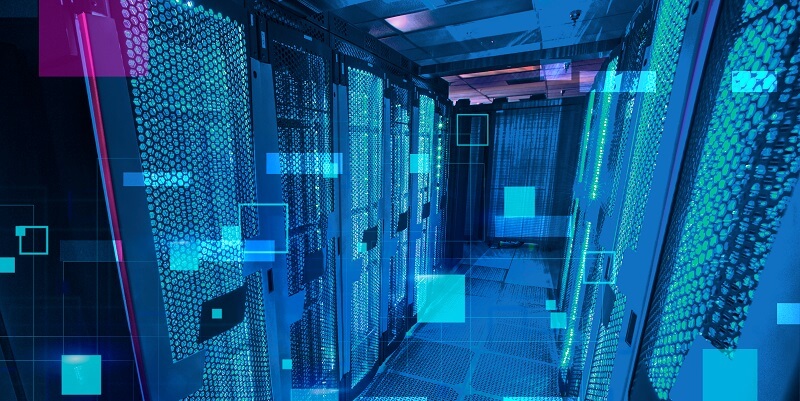The combination of AI and cloud computing has the potential to reshape industries and pave the way for a future that is more efficient, intelligent, and connected. AI, with its ability to mimic human intelligence and perform tasks that traditionally required human intervention, has already made significant strides in various industries. Cloud computing, with its ability to store and process massive amounts of data on remote servers, provides the infrastructure needed to support AI applications.
AI’s impact on industries
AI has revolutionized industries by mimicking human intelligence and performing tasks with precision. From healthcare to finance, AI has made significant strides in automating processes and enhancing productivity. In healthcare, AI-powered algorithms can analyse medical records and diagnostic images to detect diseases at an early stage, improving treatment outcomes. In finance, AI algorithms can predict market trends, helping investors make informed decisions. These examples highlight how AI is transforming industries and enabling organizations to achieve new levels of efficiency and innovation. Cloud computing plays a crucial role in supporting AI applications by storing and processing massive amounts of data on remote servers. It provides the necessary infrastructure for AI algorithms to function effectively, eliminating the need for organizations to invest in expensive on-site infrastructure. The cloud’s scalability and flexibility make it easier for organizations to leverage these benefits. Furthermore, the cloud enables seamless collaboration and resource sharing, simplifying the integration of AI into existing systems.
The Far-Reaching Impact of Digital Transformation
The impact of AI and cloud computing on digital transformation is far-reaching. By leveraging the power of AI and the scalability of the cloud, organizations can streamline operations, optimize performance, and gain a competitive edge. This digital transformation extends to various industries, including healthcare, finance, retail, manufacturing, and more. Companies that embrace AI and cloud computing are better equipped to adapt to the rapidly evolving business landscape and meet the demands of their customers. One area where AI has made significant advancements is in customer service. AI-powered chatbots and virtual assistants are becoming increasingly common, providing instant support and personalized recommendations. These virtual assistants can handle customer queries, resolve issues, and even anticipate customer needs based on historical data. Organizations deploying AI-powered chatbots experience enhanced customer satisfaction and reduced response times, leading to improved overall customer service.
Uncovering Valuable Insights with AI Algorithms
AI algorithms have the ability to analyse vast amounts of data and uncover valuable insights that were previously hidden. By utilizing machine learning and data analytics, these algorithms can identify patterns, detect anomalies, and make accurate predictions. This enables organizations to make data-driven decisions, identify emerging market trends, and gain a competitive advantage. The insights derived from AI algorithms help organizations optimize operations, improve efficiency, and create innovative products and services.
Increased Productivity and Cost Efficiency with AI-Powered Robots and Machines
The integration of AI-powered robots and machines in industries has significantly improved productivity and cost efficiency. These machines can perform complex tasks with precision and without the limitations associated with human labour. In manufacturing, AI-powered robots can handle intricate assembly processes, reducing errors, and increasing production rates. In logistics, AI algorithms optimize routes and warehouse operations, leading to streamlined processes and reduced costs. The use of AI-powered machines is transforming industries by automating tasks that were once time-consuming, labour-intensive, and prone to human error.
Improving Healthcare Outcomes with AI and Cloud Computing
The healthcare industry has seen immense benefits from the integration of AI and cloud computing. AI’s ability to analyze medical records and diagnostic images has revolutionized disease detection and treatment. AI algorithms can quickly and accurately analyze medical records to identify potential health risks, enabling healthcare professionals to intervene earlier and improve patient outcomes. Additionally, cloud computing allows healthcare providers to securely store patient data, facilitating collaboration between healthcare professionals and enabling better patient care and research. The cloud infrastructure also ensures data accessibility and security, reducing the risk of data loss or breaches.
The impact of AI and cloud computing on digital transformation is undeniable, reshaping industries and enabling businesses to become more efficient, intelligent, and connected. The combination of AI’s ability to mimic human intelligence and cloud computing’s infrastructure to store and process massive amounts of data unlocks countless possibilities for organizations across various sectors. From improving customer service with AI-powered chatbots to making data-driven decisions with AI algorithms, the potential for innovation and growth is vast. Embracing AI and cloud computing is critical for organizations to thrive in the digital age and remain competitive in an ever-evolving business landscape.

